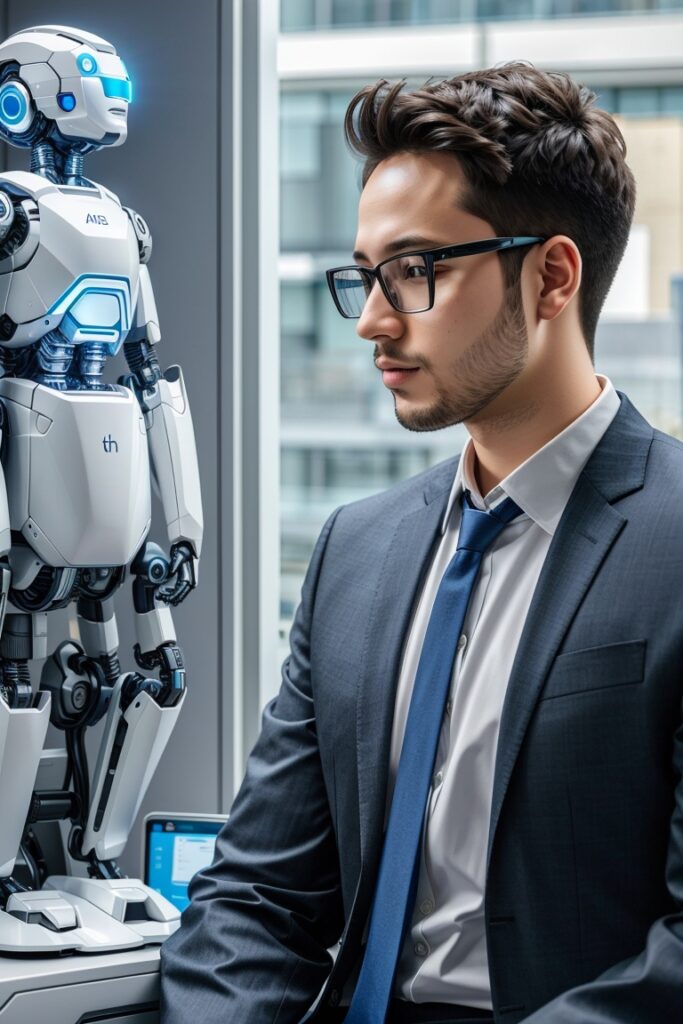Will AI Take Your Job? Artificial intelligence (AI) is revolutionizing various aspects of our lives, and its impact on the job market is undeniable. While some experts predict that AI will replace a significant number of jobs, others argue that it will bring forth new opportunities. In this article, we will explore the future of jobs in the age of AI and how individuals can prepare for this evolving landscape.

Which Jobs Are at Risk?
Certain types of jobs are more susceptible to automation than others. Occupations that involve repetitive tasks, follow predictable patterns, and require minimal creativity or social interaction are more likely to be replaced by AI. Examples of such jobs include those in manufacturing, customer service, and data entry. The automation of these roles can lead to increased efficiency and reduced costs for businesses.
Which Jobs Will Be Created?
Although automation may eliminate some jobs, AI will also give rise to new employment opportunities. These emerging roles will necessitate skills in data science, machine learning, programming, and other AI-related fields. Industries such as healthcare and transportation, which are still in their early stages of AI integration, will experience the creation of entirely new positions. As AI technology advances, there will be an increased demand for professionals who can understand and harness its potential.
How Will the Job Market Change?
The overall impact of AI on the job market remains uncertain. While some anticipate a net loss of jobs, others believe that AI will generate more employment opportunities than it eliminates. However, one thing is certain: the job market will undergo significant transformations in the coming years. To adapt to these changes, individuals must be prepared to acquire new skills and embrace emerging technologies.
What Can You Do to Prepare?
If you are concerned about the potential impact of AI on your job, there are several proactive steps you can take to prepare yourself for the future:
- Learn New Skills: Stay ahead of the curve by acquiring skills that are in high demand in the AI-driven economy. This may involve enrolling in courses, attending workshops, or pursuing advanced degrees in fields such as data science, machine learning, or programming.
- Network with AI Professionals: Connect with individuals who are already working in AI-related roles. Engaging with experts in the field can provide valuable insights, guidance, and potential job opportunities. Attend conferences, industry events, and online forums to expand your professional network.
- Stay Updated on AI Developments: Keep yourself well-informed about the latest advancements in AI technology and its applications across various industries. Subscribe to relevant publications, follow influential AI thought leaders on social media, and engage in continuous learning to stay abreast of the evolving landscape.
The Future of Jobs
While the future of jobs in the age of AI remains uncertain, one thing is clear: AI will have a significant impact on the job market. As automation becomes more prevalent, individuals must adapt to stay relevant. By embracing continuous learning, acquiring new skills, and fostering professional connections, individuals can position themselves to take advantage of the opportunities that AI will create.
Will AI Take Your Job : AI, Jobs, and Automation: The Future of Work
The integration of AI into the workplace is transforming industries and redefining traditional job roles. The advancements in AI technology offer immense potential for increased efficiency, productivity, and innovation. While some job positions may be replaced by automation, new roles that require uniquely human skills, creativity, and problem-solving abilities will emerge. By embracing the possibilities of AI and actively participating in its development, individuals can navigate the changing landscape and shape the future of work.
Conclusion
As AI continues to evolve and permeate various industries, its impact on the job market will become more pronounced. While the extent of job displacement and creation is uncertain, individuals can proactively prepare for the future by acquiring new skills, expanding their professional networks, and staying informed about AI advancements. By doing so, they can position themselves to thrive in the age of AI.
FAQs
1. Will AI completely replace human workers? No, AI is not expected to completely replace human workers. While certain jobs may be automated, new roles requiring uniquely human skills will emerge.
2. Which industries will experience the most significant impact from AI? Industries such as manufacturing, customer service, and data entry are more likely to be affected by AI automation. However, healthcare and transportation are among the sectors that will see the emergence of new AI-related jobs.
3. How can individuals stay relevant in the age of AI? Individuals can stay relevant by continuously learning and acquiring skills that are in demand in the AI-driven economy. Networking with professionals in AI-related fields and staying updated on AI developments are also crucial.
4. Will AI create more jobs than it eliminates? Opinions on this matter vary. While some experts anticipate a net loss of jobs, others believe that AI will generate new employment opportunities that surpass those lost to automation.
5. How can AI benefit the job market? AI has the potential to increase efficiency, streamline processes, and enable businesses to innovate. It can also free up human workers from mundane tasks, allowing them to focus on more complex and creative endeavors.
You may also be interested to read Best Investment Banks in Australia
Lemonade Insurance Careers
How to Build a Good Credit Score
Read more about : Artificial Intelligence


